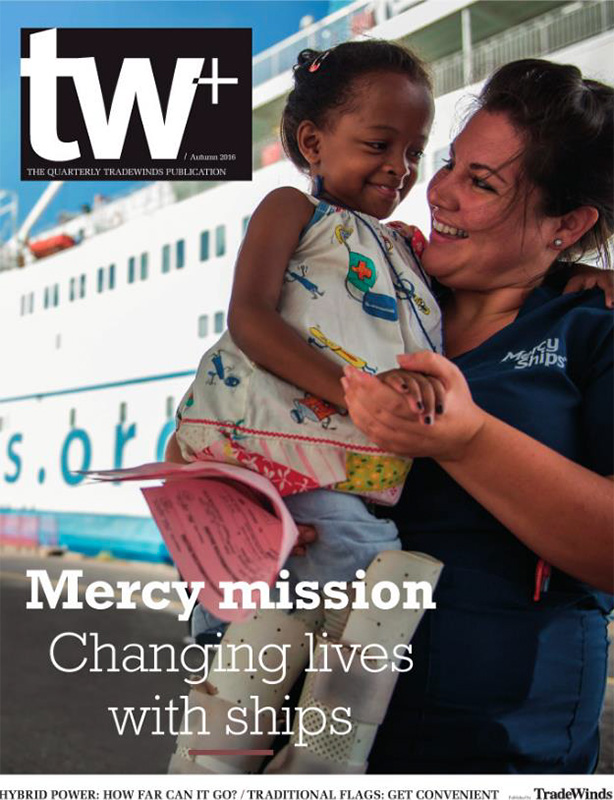Mercy Ships has developed since its foundation in 1978, from responding to disasters to capacity-building. It works with host nations to provide a legacy of desperately needed healthcare by training local surgeons, nurses, anaesthetists, sterilising technicians, community health workers and administrators to continue the work after the ship departs.
Its mentoring programmes, referred to as the “surgical ecosystemâ€, also embrace the renovation of onshore hospitals, working with other organisations such as Medical Aid International, which specialises in equipping operating theatres.
Onshore, the Hope (Hospital Out-Patient Extension) Centre is a convalescent facility established wherever the ship goes, to provide housing for patients and caregivers close to the vessel while freeing up bed space in the vessel’s hospital wards. Patients can convalesce, sometimes for two or three months if they need physical therapy or are waiting for wounds to heal.
A NOK10m ($1.2m) grant by the Norwegian government has been used for renovation projects at the hospital where the centre was located in Tamatave during Mercy Ships’ Madagascar stay.
Africa Mercy was acquired through a £4m-£5m ($5.3m-$6.6m) donation from billionaire Ann Gloag, who with her brother, Brian Souter, built the UK and US bus and rail group Stagecoach. The ship underwent an expensive and lengthy conversion in northeast England.
Volunteers speak openly about how they feel called to serve on the Christian faith-based ship, but there is little evidence of the overt evangelical outreach or “missionary zeal†with which Mercy Ships was associated in former years.
“The Lord will provide. That is the principle,†says Africa Mercy managing director Robin MacAlpine about the extra 600 volunteers who will be needed when the charity’s new ship is delivered. “We are all paying our way for the privilege of working on board. So we are all in the same boat by living on faith.†But that is as far as the religious message went during TW+’s time on board.
MacAlpine, who spent around 23 years with the office of the UN High Commissioner for Refugees and other NGOs, also sees planting the seeds of hope as pivotal in Mercy Ships’ role. “Here we create hope,†he replies when asked why he joined the organisation around three years ago.
MacAlpine began his career in the British Royal Navy, serving as a helicopter pilot with the Fleet Air Arm. He lives with his Swiss wife Laurette, a nurse now involved with human resources on Africa Mercy, and has no intention of retiring despite approaching 70. “I don’t know what I would do if I took it easy,†he says. “As long as I have breath in me and I can walk around, think and remember, I want to be active.â€
by Geoff Garfield, London
Published in TW+
www.tradewindsnews.com
Signed by


